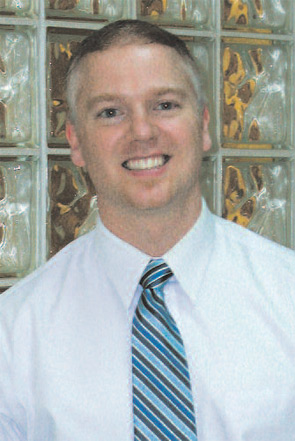
Do you know that old adage about the best-laid plans? If you ask Jon T. Giles, MD, about it, he’d agree that even the firmest plans change. “When I entered medical school at Vanderbilt University, I was convinced that I’d pursue subspecialty training in neurology,” recalls Dr. Giles. “My plan was to specialize in movement disorders.”
Though Dr. Giles held fast to that plan during his first three years at Vanderbilt, his fourth year held a few surprises. During that year, Dr. Giles elected to complete a rheumatology rotation. What he didn’t elect was the career-changing experience he would have. “The rheumatology rotation made sense for me because I was interested in movement disorders,” says Dr. Giles. “I knew that exposure to musculoskeletal disorders would provide an advantage to me as I went on to pursue neurology. What I didn’t know is how fascinating these musculoskeletal and rheumatic disorders actually were in themselves.”
His rheumatology rotation was such an interesting and enriching experience that Dr. Giles decided to switch gears and build his career around rheumatology. “Diagnosing and treating rheumatic disease involves creativity and finesse, and a future in rheumatology would present the kinds of exciting professional challenges I was seeking for my medical career,” comments Dr. Giles.
He completed his residency at the University of California, San Diego (UCSD). “It was during my residency that I really defined my career plan,” says Dr. Giles. “I had excellent interactions with the rheumatology faculty at UCSD, and decided to pursue fellowship training in rheumatology with a plan to focus on clinical research.” Though sad to leave Southern California, Dr. Giles decided to pursue his fellowship training at Johns Hopkins University in Baltimore, Md., where he found a research mentor in Joan Bathon, MD, professor of medicine and director of the Johns Hopkins Arthritis Center.
During his fellowship, Dr. Giles worked closely with Dr. Bathon on a study focused on subclinical cardiovascular disease in patients with rheumatoid arthritis. As he neared the end of his fellowship, knowing that he wanted to continue with clinical rheumatology research, Dr. Giles looked for research funding.
“Figuring out how I wanted my career in rheumatology research to progress—that was the easy part. Figuring out how to fund my career in rheumatology research was not nearly as easy,” shares Dr. Giles. “Research funding is hard to obtain, especially if you are a young investigator trying to get started. I wanted to stay on as faculty at Johns Hopkins and continue my research projects, but without adequate funding, I’d have to spend less time on research and more time in the clinic.”
As a trainee ACR member, Dr. Giles received information about the ACR Research and Education Foundation (REF) Clinical Investigator Fellowship Award, a program designed for young rheumatologists interested in building careers in clinical research. He applied for and received the award in late 2004.
“I can’t tell you how much better I slept at night knowing that I had secured funding for two years.,” says Dr. Giles. “I was able to stay at Johns Hopkins as a faculty member and continue my research, mentored by Dr. Bathon.”
With his REF funding, Dr. Giles began a study focusing on the relationship between body composition and accelerated cardiovascular disease in RA, related to his work with Dr. Bathon. Dr. Giles’ study is one of the first to evaluate fat mass and muscle mass as separate components of overall body composition in patients with RA, and where fat mass is distributed in the body in connection with RA disease outcomes, such as disability and subclinical cardiovascular disease.
Data from this study have produced some interesting findings. The greater an RA patient’s fat mass, the more severe the disability was. Further, of patients with high fat mass, the most severely disabled were those whose fat mass was heavily concentrated in the limbs. Study findings also indicated that a concentration of fat around the body’s middle section may increase cardiovascular disease risk.
One of the most interesting results of Dr. Giles’ study is what he learned about the effect of fat mass on C-reactive protein (CRP) levels in women. His results suggested that high body fat may be a major contributor to elevated CRP levels in women, perhaps even more than RA disease activity in some cases. The same did not hold true in male patients.
Dr. Giles is excited about his findings and their implications for patients. “It will be valuable for patients to understand how their body composition can affect their RA symptoms and severity, as well as predict their risk for cardiovascular disease,” he says.
Dr. Giles is glad that he seized the opportunity during his rheumatology rotation at Vanderbilt University—it led him to the ACR REF Clinical Investigator Fellowship Award which has opened many new opportunities, including pursuing a Masters of Public Health degree and securing a NIH/NIAMS-funded K23 award to continue his clinical research.
“Truthfully, I would not have been so successful in securing a K23 without my REF funding. The award really was the perfect opportunity for me at that stage in my career. It was tailored to the young investigator, and other potential funding sources have taken notice of the fact that I received REF funding as a young investigator,” reflects Dr. Giles. “Most importantly, REF funding helped make the transition from rheumatology fellow to rheumatology researcher smoother. And, it will continue to open new doors for me.”
The ACR REF Clinical Investigator Fellowship Award is part of the REF’s extensive awards and grants portfolio. This award supports a structured, formal clinical research training program for rheumatology fellows or young rheumatologists.

